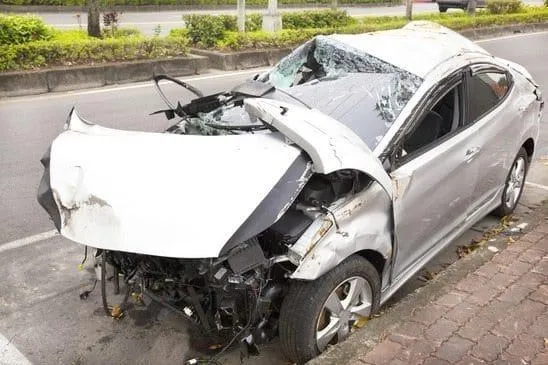
What is considered a total loss in Pennsylvania?
A car is considered a total loss in Pennsylvania when the vehicle’s actual cash value is equal to or less than the cost of repairs plus the salvage value. Actual cash value refers to how much the car was worth immediately before the damage, while the salvage value is the car’s worth in its damaged state.
When a car is totaled according to the Pennsylvania totaled car law, the policyholder will receive the car’s actual cash value from the insurance company if the loss was covered. Insurance companies in Pennsylvania are also required to pay for applicable taxes and title costs if the policyholder purchases a replacement vehicle.
Pennsylvania Total Loss Law Example
- Pre-crash value: $15,000
- Cost of repairs: $6,000
- Salvage value: $10,000
- Pre-crash value – cost of repairs – salvage value = -$1,000
- Result: Car is totaled
In this example, the driver’s car is totaled according to Pennsylvania law because its pre-crash value, or actual cash value (ACV), is lower than the sum of its repair cost and salvage value.
It’s also worth noting that the vehicle used in this example probably cost more than $15,000 when it was originally purchased. The ACV is meant to reflect the car’s worth in its depreciated state, not the cost of replacing the vehicle. If you want a higher payout in the event of a total loss, you should look into optional coverage add-ons like new car replacement or gap insurance.
For more information on what to so if your car is deemed a total loss give us a call 215-967-7123
